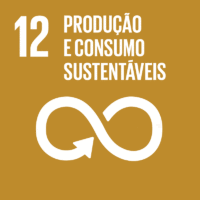Ciência_Iscte
Comunicações
Descrição Detalhada da Comunicação
Sustainable food systems: how important are bottom-up innovative experiments?
Título Evento
European Conference on Innovation and Entrepreneurship
Ano (publicação definitiva)
2018
Língua
Inglês
País
Portugal
Mais Informação
Web of Science®
Esta publicação não está indexada na Web of Science®
Scopus
Esta publicação não está indexada na Scopus
Google Scholar
Esta publicação não está indexada no Google Scholar
Esta publicação não está indexada no Overton
Abstract/Resumo
The paper aims to analyse sustainable innovations in food production, commercialization and consumption, notably in the form of new production practices, new means of commercialization and new patterns of consumer behaviour. The main goal is to determine the importance of these recent experiments in the shift towards a more sustainable sociotechnical food system in Portugal, in a comparative perspective.
In fact, there have been social, technological and organizational innovations in the food system in Portugal: novel forms of organic food production; new specialized retail chains; the transformation of food departments in large stores; and the creation of short food supply chains. These experiments – innovations deployed in “niches”, or protected spaces -, may become more widely adopted depending on their degree of compatibility with the dominant regime or, conversely, their ability to substitute the dominant regime (Ingram et al, 2015). Tensions at the mainstream regime (Smith, 2016) or pressures exerted by the landscape (Geels, 2004) may boost the diffusion of these innovations, favouring a complex transition process.
When developing initiatives to achieve a sustainable food system, the role played by institutions (local and national authorities and legal framework) is crucial, as is the involvement of a wide range of actors (e.g., farmers, food processing companies, retailers and consumers). New social practices are crucial to this shift, due to centrality of consumers in this shift (Spaargaren, 2011). Policies may support or hinder the emergence and deployment of experiments in the form of new products, processes, business models and practices.
The theoretical framework draws on niche strategic management (Smith, 2006), sustainable transitions multilevel approach (Geels, 2004) and social practices approach (Spaargaren, 2011).
The paper aims to contribute to the literature by making a critical assessment of the impact of these experiments on the transition in the food system in Portugal, taking into account successful cases reported in the literature. It also aims to contribute to policy formulation regarding a sustainable food system.
Agradecimentos/Acknowledgements
Projeto SPLACH – Spatial Planning for Change
Palavras-chave
sustainability transitions,food system transition,social innovation,innovation in food production and retail,sustainable food policies
Classificação Fields of Science and Technology
- Economia e Gestão - Ciências Sociais
Registos de financiamentos
| Referência de financiamento | Entidade Financiadora |
|---|---|
| POCI-01-0145-FEDER-016431 | European Regional Development Fund (FEDER), through COMPETE2020 - Competitiveness and Internationalization Operational Program (POCI) and by National funds through the Foundation for Science and Technology FCT |
Contribuições para os Objetivos do Desenvolvimento Sustentável das Nações Unidas
Com o objetivo de aumentar a investigação direcionada para o cumprimento dos Objetivos do Desenvolvimento Sustentável para 2030 das Nações Unidas, é disponibilizada no Ciência_Iscte a possibilidade de associação, quando aplicável, dos artigos científicos aos Objetivos do Desenvolvimento Sustentável. Estes são os Objetivos do Desenvolvimento Sustentável identificados pelo(s) autor(es) para esta publicação. Para uma informação detalhada dos Objetivos do Desenvolvimento Sustentável, clique aqui.

 English
English


